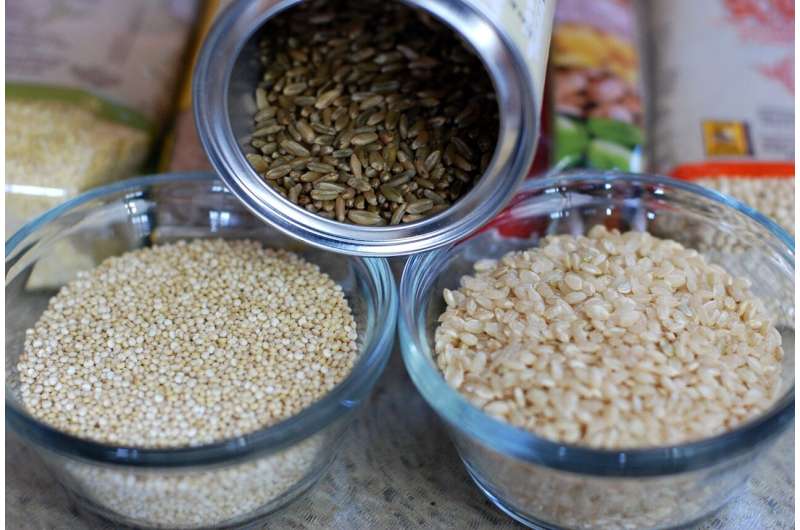This article has been reviewed according to Science X's editorial process and policies. Editors have highlighted the following attributes while ensuring the content's credibility:
fact-checked
trusted source
proofread
Do you need more dietary fiber or less?

Dietary fiber, also known as roughage or bulk, includes the parts of plant foods your body can't digest or absorb. Unlike other food components, such as fats, proteins or carbohydrates—which your body breaks down and absorbs—fiber isn't digested by your body. Instead, it passes relatively intact through your stomach, small intestine and colon and out of your body. Fiber is commonly classified as soluble, which dissolves in water, or insoluble, which doesn't dissolve.
The recommended amount of dietary fiber is 14 grams for every 1,000 calories per day, or about 25 grams for women and 38 grams for men each day, according to the Academy of Nutrition and Dietetics.
The amount of fiber your body needs may vary depending on your energy needs. It also can depend on certain health conditions you may have.
Why you might need more fiber in your diet
Constipation, hemorrhoids, high cholesterol and diabetes are some of the health conditions for which your health care team might advise you to increase your fiber intake:
In particular, a high-fiber diet:
- Normalizes bowel movements. Dietary fiber increases the weight and size of your stool and softens it. A bulky stool is easier to pass, decreasing your chance of constipation. If you have loose, watery stools, fiber may help to solidify the stool because it absorbs water and adds bulk to the stool.
- Helps maintain bowel health. A high-fiber diet may lower your risk of developing hemorrhoids and small pouches in your colon (diverticular disease). Studies have also found that a high-fiber diet likely lowers the risk of colorectal cancer. Some fiber is fermented in the colon. Researchers are looking at how this may play a role in preventing colon diseases.
- Lowers cholesterol levels. Soluble fiber found in beans, oats, flaxseed and oat bran may help lower total blood cholesterol levels by lowering low-density lipoprotein, or "bad," cholesterol levels. Studies also have shown that high-fiber foods may have other heart-health benefits, such as reducing blood pressure and inflammation.
- Helps control blood sugar levels. In people with diabetes, fiber—particularly soluble fiber—can slow the absorption of sugar and help improve blood sugar levels. A healthy diet that includes insoluble fiber also may reduce the risk of developing type 2 diabetes.
- Aids in achieving healthy weight. High-fiber foods tend to be more filling than low-fiber foods, so you're likely to eat less and stay satisfied longer eating high-fiber foods. And high-fiber foods tend to take longer to eat and are less "energy dense," which means they have fewer calories for the same volume of food.
- Helps you live longer. Studies suggest that increasing your dietary fiber intake—especially cereal fiber—is associated with a reduced risk of dying from cardiovascular disease and all cancers.
Why you might need less fiber in your diet
Some of the reasons your health care team might recommend a low-fiber diet include:
- You have narrowing of the bowel. This may be due to a tumor or an inflammatory disease, such as Crohn's disease and ulcerative colitis.
- You have had bowel surgery.
- You are having treatment that damages or irritates your digestive system. For example, radiation can cause irritation.
Eating a low-fiber diet will limit your bowel movements. It may help reduce diarrhea or other symptoms, such as stomach pain. After a short time, you may be able to slowly introduce fiber into your diet again.
Because a low-fiber diet limits what you can eat, it can be difficult to meet your nutritional needs. You should follow a low-fiber diet only as long as directed by your health care team.
If you must continue eating this diet for a longer time, consult a registered dietitian. A dietitian can help make sure you are meeting all your nutritional needs.




















